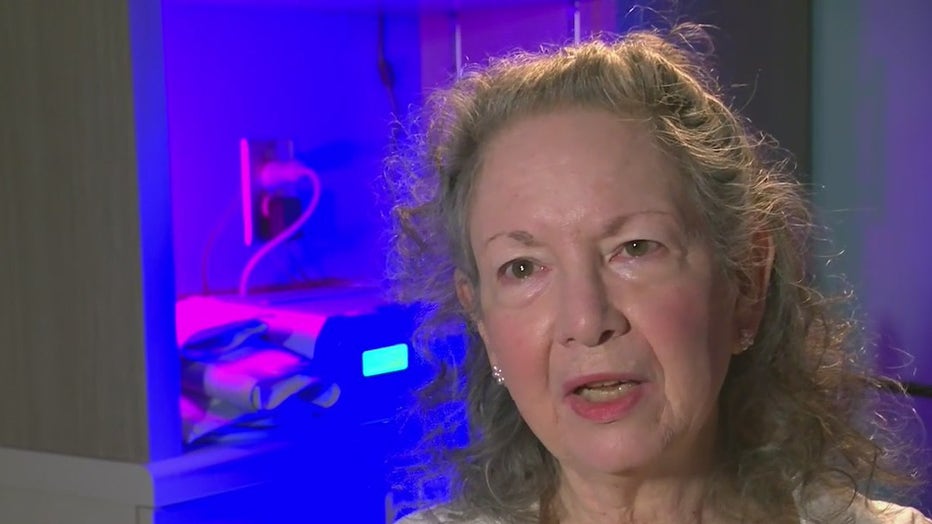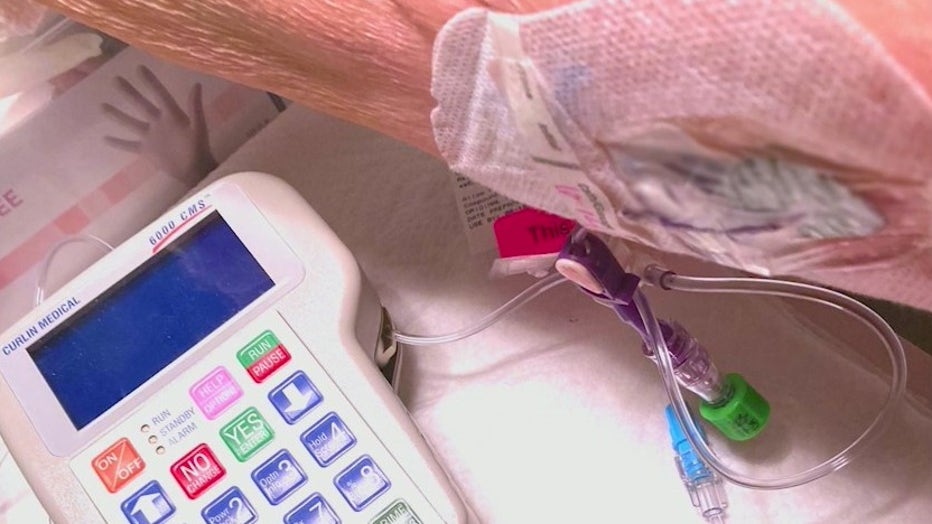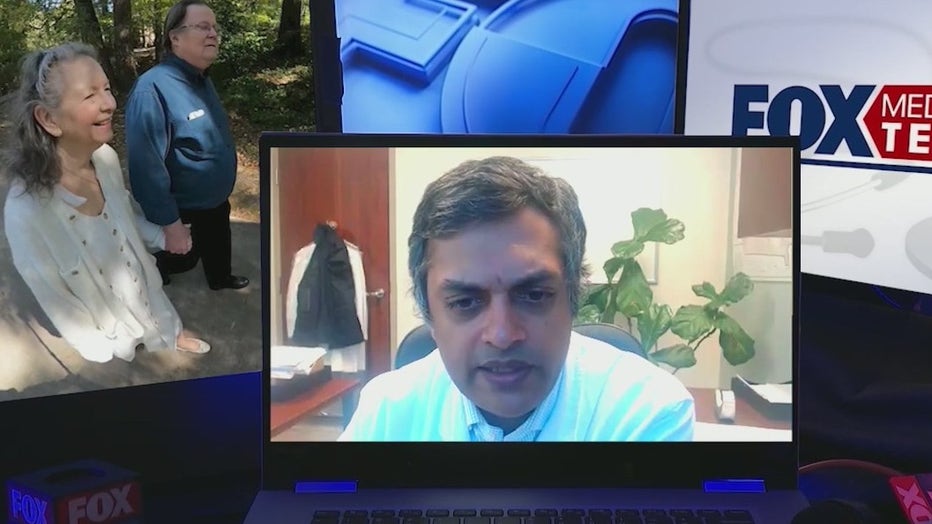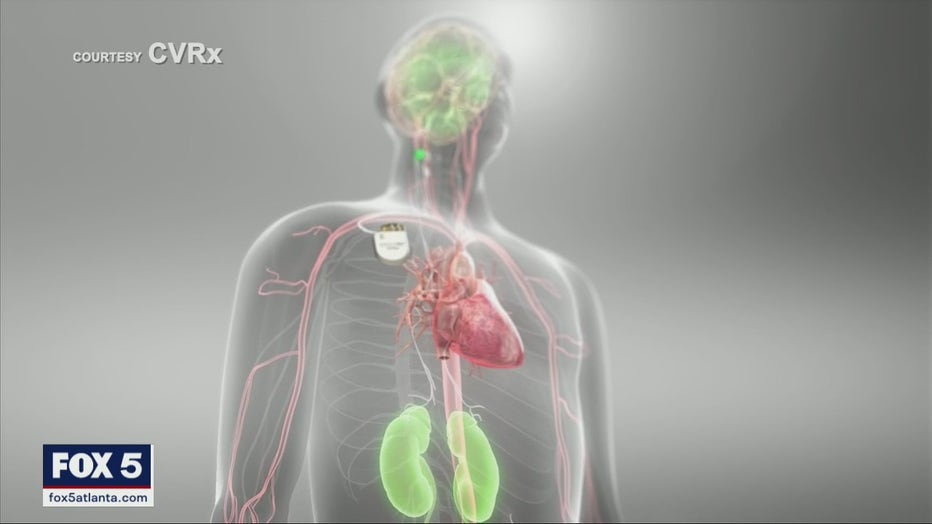New implantable device helps ease heart failure symptoms
New device helps patients with advanced heart failure
An advanced heart failure patient told FOX 5's Medical Team a new implantation device helped her get her freedom back.
Atlanta - For the last few years, something as simple as going for a walk with her husband Ed has been a struggle for Margaret Chappell.
"I would get short of breath doing almost anything," Chappell said. "Just getting dressed, I'd get short of breath."
The 71-year-old from Vinings, Ga. is living with congestive heart failure.
She was in her thirties, working as an OR nurse, when she was diagnosed with cardiomyopathy, or a thickening of the heart muscle.

"I was really tired," Margaret Chappell said. "I mean, I would take a nap and then wake up and take another nap." (FOX 5 Atlanta)
"I was really tired," Chappell said. "I mean, I would take a nap and then wake up and take another nap."
For years, Chappell managed her symptoms with medication.
But, about 4 years ago, she said she started feeling weak and short of breath again.
"Most of the time, it's like I'm not getting any blood in my brain, and I pass out," she said. " Then all of a sudden I wake up, and it's like, 'What happened?'"

Chappell's mobile IV pump that delivers a continuous supply of milrinone, a drug for advanced heart failure. (FOX 5 Atlanta)
So, Chappell switched to this IV pump that delivered a continuous supply of milrinone, a drug for advanced heart failure.
But she had to take it everywhere she went.
"To get up and go to the bathroom, I had to take it with me," Chappell said. "To walk across the room, I had to take it with me. And, I kind of got the idea of how a dog felt on a leash, you know?"
And, there was another problem.

Dr. Arun Krishnamoorthy talked to the FOX 5 Medical Team. (FOX 5 Atlanta)
Dr. Arun Krishnamoorthy, Chappell's advanced heart failure cardiologist at Piedmont Heart Institute, said milrinone is a short-term treatment.
"The way that I describe that medication to patients is, if your heart was a car, her car is only driving about 10 to 15 miles an hour," Dr. Krishnamoorthy said. "This medicine makes the car go 100 miles an hour, which is great in the short term. But, if you drive a car 100 miles an hour all the time, you know what's going to happen to that car? That car is going to break down."
Last spring, after 10 months on the pump, Dr. Krishnamoorthy recommended a new pacemaker-like device for heart failure patients who have run out of treatment options: a Barostim implant.

A Barostim implant, a pacemaker-like device for heart failure patients who have run out of treatment options.
The device sends electrical pulses to sensors in the wall of the carotid artery in the neck that measure blood flow.
It is designed to reset or rebalance the body's natural blood flow regulation system, signaling to Chappell's arteries to relax, for her heart to slow down, relieving some of the breathlessness and fatigue she feels.
And, it's helping, with no strings attached.
"We were thankfully able to use this device as a way to wean her off that I.V. medication and to provide her a little bit more freedom," Dr. Krishnamoorthy said.
Margaret Chappell said she still has advanced heart failure, but she is feeling better
"I would do it again in a heartbeat," Chappell said. "You know, it's really made a difference."

